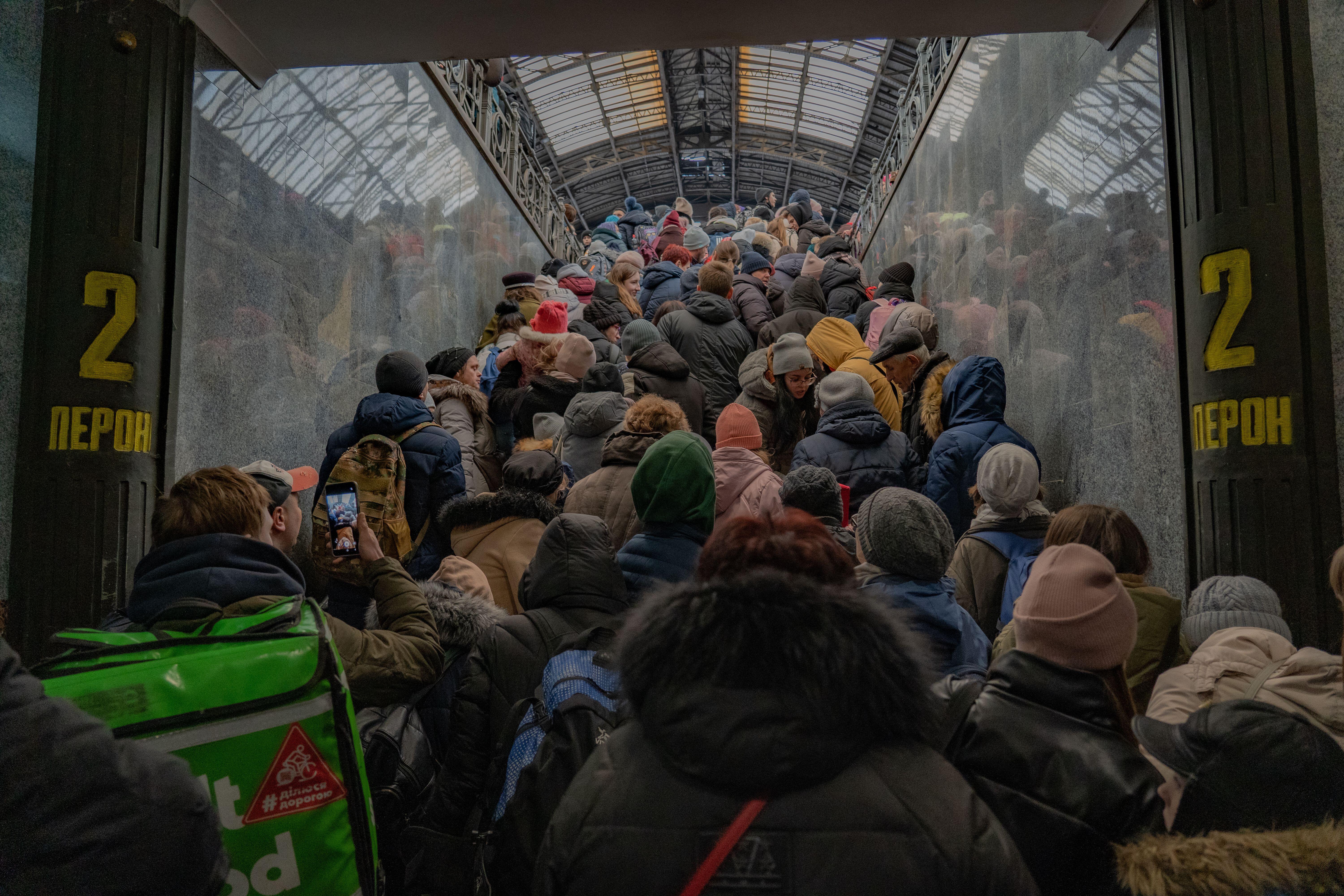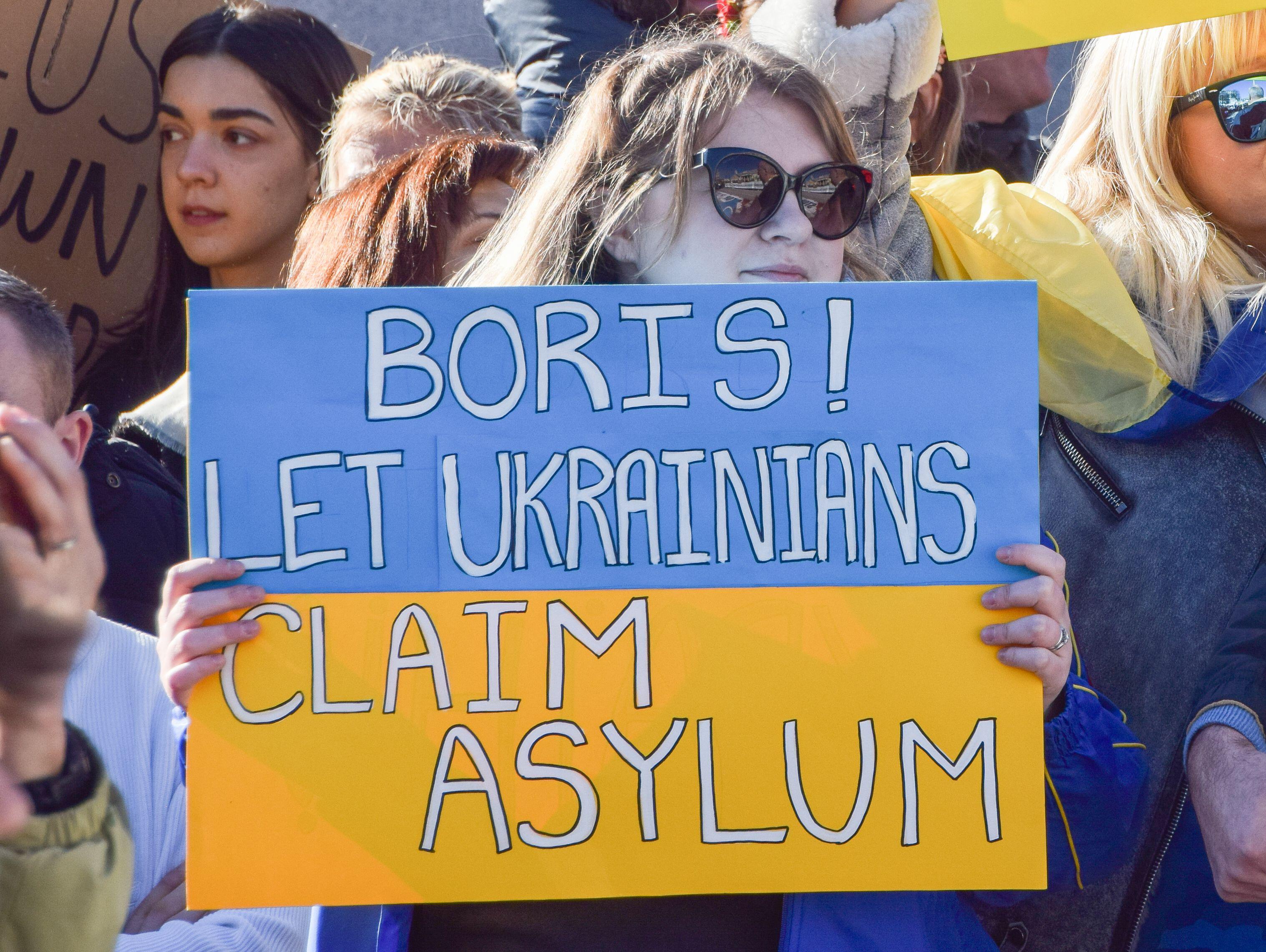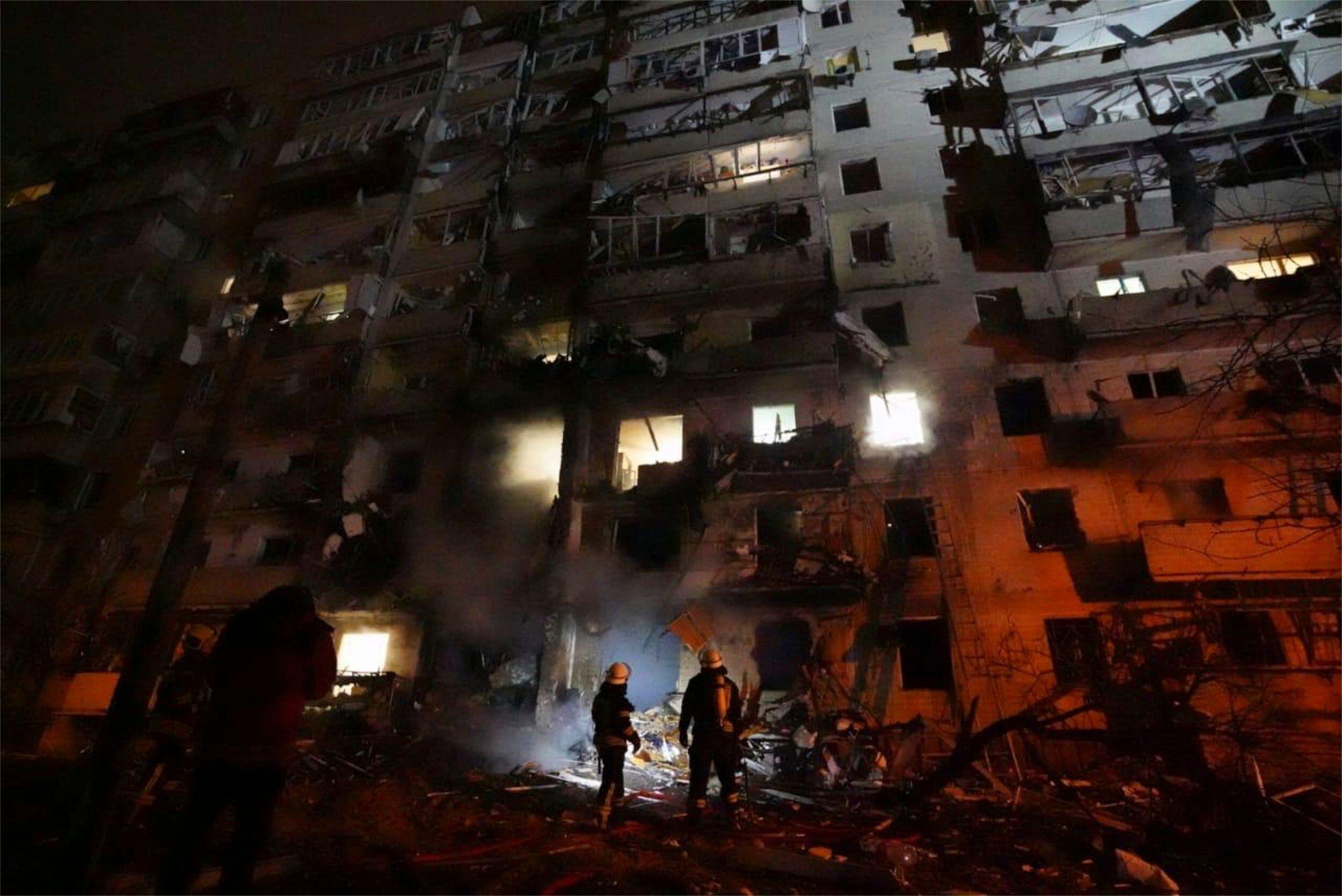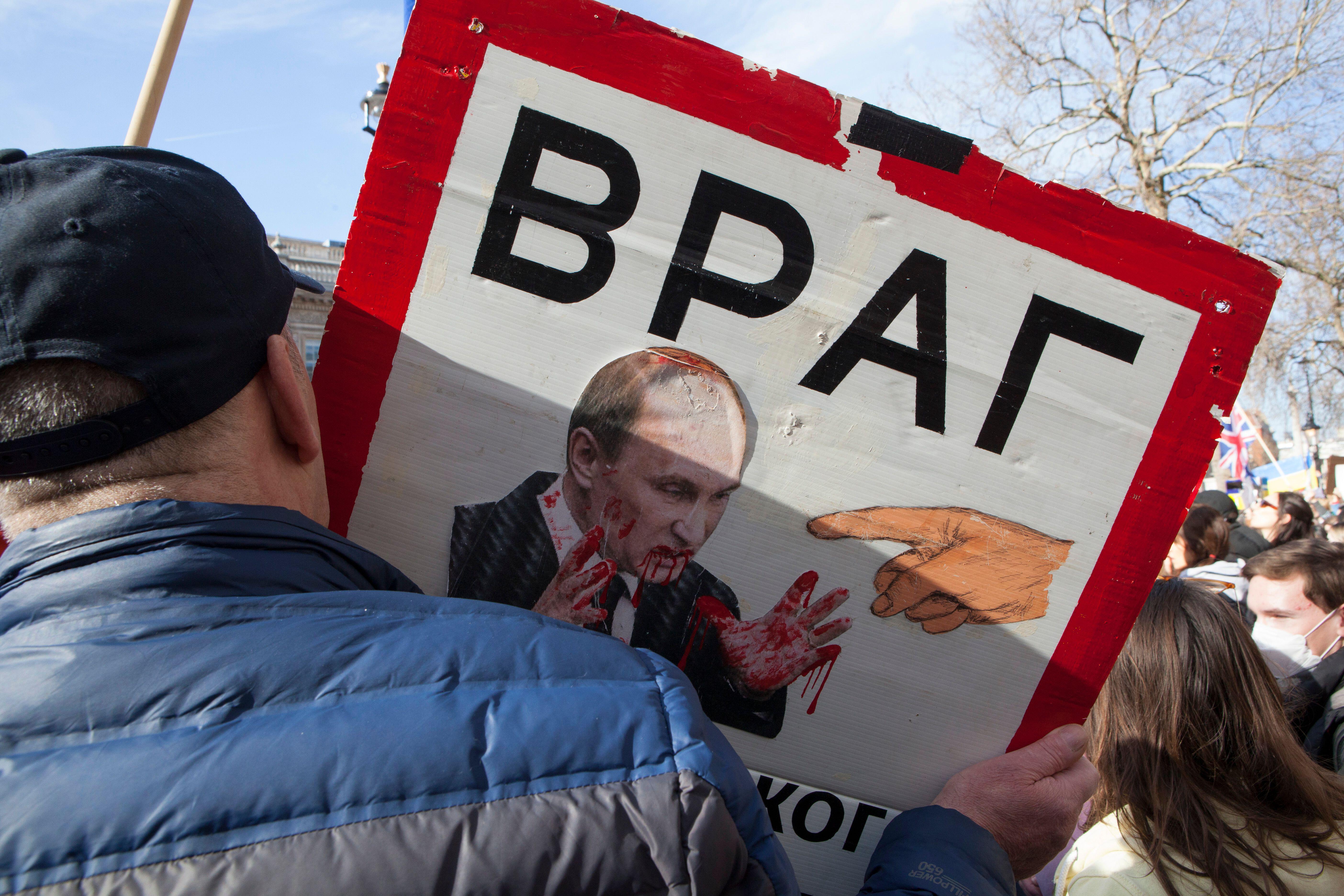A Fight for the Future: The war in Ukraine will define our politics both home and abroad for years to come
When Vladimir Putin announced his “special military operation” in Ukraine at the end of last month, it began a brutal awakening from a collective slumber.
Since the end of hostilities in the former Yugoslavia, Europe has lived through a sustained peace unlike any seen in its history, a situation most of us took for granted. Alongside this complacency was a near-universal denial about the extent of Moscow’s intentions.
While few predicted a full-scale military invasion of Ukraine and the atrocities that have followed, the signs of aggression have been there for some time. They were there when Russia invaded Georgia in 2008, when it invaded Crimea in 2014, when Moscow-backed separatists allegedly downed Malaysia Airlines flight MH17, killing 298 innocent civilians, or when Putin’s regime attempted to murder Sergei Skripal on UK soil in 2018.
Most significantly, they were there in Syria, where the Kremlin has propped up the bloody regime of Bashar al-Assad, perpetuating a conflict which has so far claimed more than 350,000 lives. On every occasion the world’s response has been to look the other way.
In Ukraine, the immediate challenge for the West is to avert a humanitarian catastrophe while limiting Russian aggression and avoiding a further escalation of hostilities. But there are also longer-term questions about the future of Nato and of the EU, questions about post-Brexit Britain’s role in Europe and even Scotland’s continued future in the UK.
According to the United Nation’s refugee agency (UNHCR), more than two million Ukrainians have fled the country since the war began. That’s two million lives upended and changed forever in a country which held democratic elections as recently as 2019. While the people of Europe have risen to the challenge, waiting at train stations in cities such as Berlin and Warsaw to offer their homes to new arrivals, the response of governments across the continent has been mixed.
The majority of refugees, more than a million people, initially made their way to Poland, with countries such as Hungary, Slovakia and Romania receiving Ukrainians in their tens of thousands. While many are likely to move on to other countries eventually, at the time of writing, only limited numbers had arrived in countries such as France and Germany. However, the EU is drawing up plans to give Ukrainians who flee the war the right to stay and work in all 27 member countries for up to three years.

The UK’s response has been something else entirely. By the start of the week – nearly two weeks after the conflict began – just 50 Ukrainian refugees had been granted UK visas by the Home Office, around one per cent of those who applied.
The apparent lack of alacrity with which the UK has moved is perhaps not surprising given the rhetoric we’ve come to expect on immigration from a government which seriously considered pushing migrant boats back into the Channel earlier this year. Indeed, the tone was set right at the start of the current conflict when in a now-deleted tweet, immigration minister Kevin Foster suggested Ukrainians were welcome to come to the UK – if they were willing to pick fruit.
The UK Government has repeatedly said that it will do more, but on this question at least, the wheels of bureaucracy appear to turn slower here than in the great red-taped monolith of the EU, which Brexit promised to free us from. The situation has led to huge frustration among organisations which stand by ready and willing to help.
“There is no time for bureaucracy or rhetoric here. People need assistance now,” says Gary Christie, head of policy at the Scottish Refugee Council.
“We need to see the UK Government offer solutions which match the gravity of mass displacement from a conflict on our doorstep.”
At the time of writing, around 1,000 Ukrainians have been granted UK visas, a figure which one would hope will increase dramatically in the coming days and weeks. By way of comparison, Ireland (a country of just over five million people) has so far taken in more than 2,500 refugees from Ukraine, a third of them children.
The UK Government says neither of the routes into the country – either for family members of those already settled here or its humanitarian sponsorship scheme – are capped, while thousands of Ukrainians already in the country will be able to have their visas extended.
The situation overall, which the UN has described as “the fastest-moving refugee crisis we have seen in Europe since the end of the second world war,” is likely to have huge implications for the continent. Ukraine is a country of more than 40 million people. Without a swift resolution to the bloodshed, it’s likely millions more will seek to leave.
Yet the UK Government has not only been wrong-footed by the crisis but appears stung by the criticism that has come from all quarters, including Brexit-supporting newspapers which have for years lobbied for tougher restrictions on immigration.
“The Home Secretary mentioned that waiving visas was too great a security risk,” says Christie. “But this is not a true barrier to offering people safety. Security checks can be done very easily at the point of entry. It’s unacceptable to be casting suspicion on these people who are mainly women and children who are only trying to reach safety.
“The UK must step up and act in solidarity not only with Ukraine, but with our European neighbours, and take its share of the responsibility and care for the safety of refugees in Europe.”
But it’s not just the humanitarian crisis which threatens to re-shape Europe in the years to come. The shock of the Russian invasion has given fresh impetus to the European Union, a project which rose from the ashes of the second world war and was initially as much about collective security as economic integration – an idea largely ignored by both sides of the Brexit debate.

The need for a united European response on matters of defence has been brought into sharper focus by the retreat of the United States, notably its failure to act in Syria and the shameful manner of its exit from Afghanistan, both of which have offered Putin encouragement.
Within days of the Russian invasion, not only Ukraine but also Georgia and Moldova applied to join the EU. While Georgia has its own recent experience of Russian invasion, Moldova has concerns over Transnistria, a predominantly Russian-speaking breakaway state. All three are unlikely to be accepted as full EU members anytime soon, but it gives an indication of which way the wind is blowing.
Perhaps more significant are the actions of existing EU members in the face of Kremlin aggression, notably Germany, which reversed decades of domestic defence policy by announcing a 100bn euro (£80bn) fund to modernise the military. Chancellor Olaf Scholz has said his country will, for the first time, meet its Nato commitment to spend two per cent of GDP on defence – up from 1.5 per cent.
Stephen Gethins is a former SNP MP and now member of the school of international relations at St Andrews University, who spent time as an election monitor in Ukraine and sat on Westminster’s all-party group on the country.
He says the true face of Putin the warmonger was there for all to see, beginning with the war in Chechnya in the early 2000s and the brutal subjugation of the capital Grozny.
“The clues have been there all along,” Gethins says. “This is somebody who has never had any issue with civilian casualties. What Putin is capable of is not something that should surprise anybody who has followed his career as president, which is why political parties taking money or people acting as propagandists for him is so unforgivable.”
Gethins says the conflict is an opportunity for post-Brexit Britain to reconsider having a common foreign and defence policy with the EU, something that would have been unthinkable just a few weeks ago.
For its part, the SNP has been unsurprisingly vocal – even hawkish – on the war, with MPs Alyn Smith, Stewart McDonald and Dave Doogan travelling to Kyiv at the start of February to pledge their support to the Ukrainians.
Earlier this week, First Minister Nicola Sturgeon was criticised for saying the West should keep an open mind on the establishment of a no-fly zone over Ukraine, a move many believe would escalate the conflict and raise the prospect of Russia deploying nuclear weapons. Her comments came on the day Ukraine’s president, Volodymyr Zelensky, again appealed for a no-fly zone over his country following the bombing of a children’s hospital in the city of Mariupol.
Former SNP leader Alex Salmond, having finally agreed amid huge pressure to take his talk show off Kremlin-backed broadcaster RT, broke cover to call on Sturgeon to “reflect”.
“In every international conflict for the last 60 years, the national movement in Scotland has stood for de-escalation and peace, not escalation and Armageddon,” he tweeted.

While defence and foreign policy didn’t play a major part in the debate during the 2014 referendum, the world will be a very different place by the time a second vote on independence is held. One major implication of a Yes vote would be the removal of Trident from the Faslane naval base.
So, is war in Europe likely to shape the independence debate?
“I don’t think so,” says Gethins. “If you look at the way Sweden, Denmark and Ireland are reacting to this, it shows European cohesion is more important. Being isolated leaves you in a position of vulnerability. Given Brexit, I think a Scotland after independence would be less isolated than the UK now is. Even things like the single energy market and food security are really important in the context of what’s going on.”
There have, however, been some figures in the SNP who have clumsily attempted to link the Ukrainians’ fight for freedom with Scottish independence. In a blog which appeared on the party’s website, SNP President Mike Russell wrote of the “right of people to choose how they are governed and by whom”.
“Nor can that right be circumscribed by history – just because something was, doesn’t mean it will always continue to be so whether that be rule from Moscow, or the result of an eight-year-old referendum.”
Writing in The Scotsman, Tory MSP Murdo Fraser described Russell’s analogy as “offensive” and “a distortion of which Putin’s propagandists would be proud”.
Nearly three weeks into Putin’s war with Ukraine, it’s still hard to fathom the brutality taking place so close to home, even if the horrors of Aleppo were a bloody illustration of the Russian president’s inhumanity. From the attack on the hospital in Mariupol, which saw terrified children and women in labour being rescued from the rubble, to the apparently indiscriminate use of munitions designed to kill and maim civilians, the Russian onslaught almost seems to be goading a western alliance which is unable to intervene.

After decades of allowing dirty Russian money to be laundered in our capital cities, the West has shown a new unity of purpose in its application of economic and cultural sanctions. But in a country where the media is so tightly controlled and where many western journalists have fled in fear of prosecution, it may be a forlorn hope that ordinary Russians will rise up against their totalitarian leader.
Eventually, the West may be forced to act militarily. But while that conflict remains a way off for now, the battle for the future of Europe and the peace we all once took for granted has already begun.
Holyrood Newsletters
Holyrood provides comprehensive coverage of Scottish politics, offering award-winning reporting and analysis: Subscribe